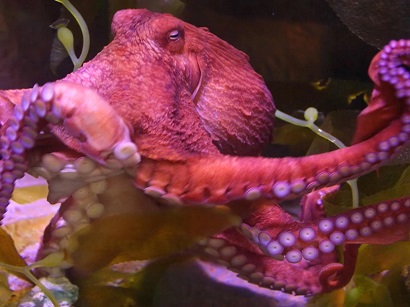“Arctic Bacteria Unlock Secrets of Thaw: Groundbreaking Gene Therapy Study Signals Impending Arctic Meltdown”
A breakthrough in the study of gene therapy for bacteria that live in icy waters has caught the attention of scientists studying the Arctic thaw. Recently published in the journal Science, the research reveals that bacteria populations adapted to Arctic conditions successfully survived experiments conducted 125,000 years ago, during a time when global temperatures were similar to those of today. This finding suggests that the Arctic thaw may be closer than previously believed, which would result in the release of vast amounts of energy stored in natural gas reserves. The authors of the study have also announced plans for further research.
As researchers delve deeper into unraveling the mysteries of the Arctic thaw, they have come across a remarkable breakthrough in the realm of gene therapy for bacteria. The studies conducted have focused on bacteria populations residing in the icy waters of the Arctic region. The latest findings, published in the renowned journal Science, demonstrate that these bacteria, specifically adapted to the extreme Arctic conditions, have managed to thrive even during experiments conducted 125,000 years ago, when temperatures were comparable to what we experience today. This revelation indicates that the Arctic thaw may be imminent, potentially resulting in the release of significant amounts of energy trapped within natural gas reserves. Taking into account the significance of these findings, the authors of the study have expressed their intentions to undertake further research.
New scientific discoveries have shed light on the Arctic thaw, with researchers uncovering an exciting breakthrough relating to gene therapy applied to bacteria inhabiting the frigid waters of the Arctic. The intriguing findings, recently published in the esteemed journal Science, reveal that certain bacteria populations, remarkably adapted to the extreme conditions of the Arctic, managed to survive experiments conducted approximately 125,000 years ago, during a time period characterized by similar global temperatures as we experience today. This revelation leads to the assumption that the Arctic thaw could be closer than anticipated, prompting the release of vast reserves of natural gas and the subsequent implications this would have. The researchers involved in this study have declared their intention to pursue further investigations in this field.
Scientists engaged in studying the Arctic thaw have encountered a groundbreaking development concerning gene therapy for bacteria residing in icy waters. This significant finding, which has been published in the esteemed Science journal, showcases the survival capabilities of bacteria populations specifically adapted to the frigid Arctic conditions during experiments conducted approximately 125,000 years ago, when global temperatures mirrored those observed today. Consequently, this revelation indicates that the Arctic thaw may be inching closer than previously hypothesized. Such a thaw would result in the release of an immense amount of energy contained within natural gas reserves. The researchers who conducted this study have expressed their intentions to pursue further investigations in this domain.


